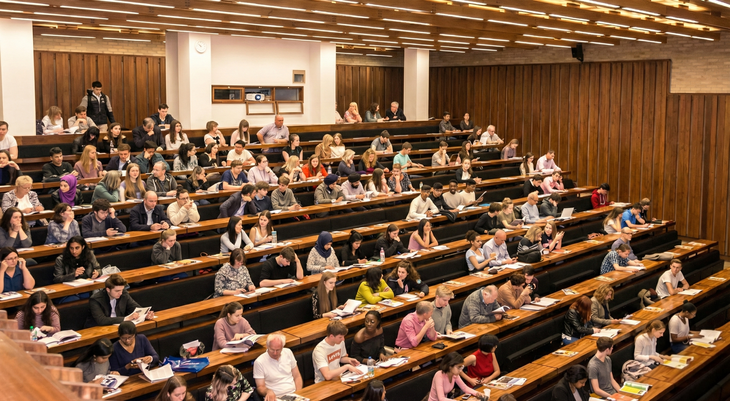
Lecture hall of the Faculty of Law at Oxford University (UK) - Photo: OXFORD
Many opinions say that there should be regulations on conditions for opening majors and closely monitoring the quality of human resource training in these two specific fields. How do developed countries respond to this situation?
Strict control of the medical industry
In many developed countries, although there is no requirement that "only single-major universities can train", the two professions of doctors and lawyers are managed by a system of industry-specific accreditation and a multi-layered licensing mechanism.
In the United States, students typically complete four years of undergraduate study (no major required, but must complete foundational science , pre-med courses) and then take the national MCAT exam. They then continue their four years of medical school to earn a doctorate of medicine (MD).
Only programs that are accredited by the Joint Commission on Medical Education (LCME), the only accrediting body recognized by the United States, are eligible to continue on to the licensing exam and residency program. Of the more than 150 schools that meet LCME standards, most are departments or medical schools affiliated with multidisciplinary universities such as Harvard, Michigan or UCLA, rather than purely medical schools.
LCME also states quite clearly that they accredit MD programs offered by "universities or medical schools", which can be any department or medical school within a multidisciplinary university as long as it meets the standards. Of course, the standards here are extremely strict.
LCME sets dozens of criteria for faculty, teaching hospitals, labs, simulation systems, curriculum, and how schools collect and analyze data on student performance. A new school that wants to open an MD program must go through multiple rounds of review before it can enroll students, and then undergo periodic reviews.
In the UK, the General Medical Council (GMC) is the gatekeeper, approving university training programmes, and assessing and accrediting hospitals and clinical practice facilities. Only those programmes approved by the GMC are eligible to enrol in the Foundation Programme for two years of practical training within the NHS.
After the first year, if assessed as meeting the requirements of clinical competence and ethics, the young doctor will be granted full registration to practice by the GMC. From there, they will have the right to continue postgraduate specialist training. The GMC also maintains a national database of doctors, issues standards of practice competence, and monitors professional quality.
They also have the power to suspend or revoke a licence if they find professional or ethical misconduct. Most UK medical institutions, from Oxford to Cambridge to Manchester, are universities of which the medical school is just one department.
Germany has opted for a "legislative" approach from the ground up. The medical curriculum is regulated uniformly in the Medical Licensing Regulation (Approbationsordnung), which applies to all schools. After about six years and three months of study, students must pass a state medical exam, administered by the health authorities of each state.
Only after passing this exam will they be granted "Approbation", a license to practice and continue to the specialized training stage. The state government has a tight grip on both the program, the exam and the license, not letting each school "swim" on its own with its own standards.
According to the above regulations, medical training is organized at more than 30 medical faculties of public universities such as Heidelberg, Munich or Freiburg. However, the important factor is that these medical faculties must meet the standards of teaching, practice hospitals and research capacity.

Medical students in the US - Photo: NYMC
Open input, tighten output with the legal industry
In terms of legal education, the United States is a typical example of the "open input - tight output" model. To practice law, students must graduate from a practical doctorate (JD) program from a school accredited by the American Bar Association (ABA).
Law schools must meet strict standards for faculty, law libraries, academic performance, and especially bar exam pass rates within two years of graduation. Schools that fail to maintain these standards face special scrutiny or the loss of accreditation.
Law school can be at a large, multi-disciplinary university like Harvard Law School, Yale Law School, or Michigan Law, or at a smaller, private institution. But a JD from these schools is only a prerequisite.
According to the National Council for Bar Examinations (NCBE), to be considered for licensure, candidates must pass the bar exam and the MPRE. Candidates must also undergo a character and ethics review process. The final decision rests with the state supreme court.
In the UK, LLB degrees must be recognised as professionally qualified by the Solicitors Regulation Authority (SRA) and the Bar Standards Board (BSB). Only programmes from institutions on this list can be used as a foundation for further legal training.
The list of accredited schools is now very wide, including major universities such as Oxford, University College London (UCL), Manchester and many local schools. After graduation, practice is determined by the Solicitor Qualifying Examination (SQE) for solicitors and first-instance litigators, or a 12-month apprenticeship for barristers. Both are subject to supervision and assessment by professional bodies.
Tight as Germany
The German legal education system is considered to be one of the most tightly controlled in Europe. All law faculties at universities are allowed to offer bachelors of law. However, students can only become judges, prosecutors or lawyers after passing two state exams (staatsexamen).
Between the two exams is a judicial internship (referendariat) lasting almost two years. During this period, candidates must rotate through courts, prosecutors' offices, administrative agencies and law offices. The state has full authority to evaluate and license the profession, tightening the output and entrance exams.
Tightening is right and needs an independent inspection mechanism
Associate Professor Dr. Nguyen Ngoc Dien - former Vice Principal of the University of Economics and Law (Ho Chi Minh City National University) - said that in Vietnam there are universities that are originally single-major. In the process of development, especially under the pressure of commercialization and financial autonomy, additional professions have developed, including law, economics, etc.
There are also universities that have developed on a multidisciplinary and multi-field basis from the beginning. Many schools have made serious investments in all fields and some have developed no less than single-disciplinary schools.
"I see that most law schools in developed countries are not single-disciplinary universities but are faculties or schools within a university such as Harvard, Oxford, Stanford. The current trend of universities is also multidisciplinary and there is overlap and interaction between disciplines," said Dr. Dien.
Meanwhile, the vice principal of a private university that trains medical students in the Southern region believes that tightening the training of doctors is necessary, but quality should not be equated with the type of school. According to him, the criteria that need to be tightened for medical training institutions are clinical practice capacity, teaching hospital system and independent accreditation standards.
According to him, Vietnam is lacking a truly independent accreditation mechanism where quality is measured by specific indicators such as the rate of standard practice, the level of clinical competence, the conditions of simulation labs and the results of post-graduation training. On the contrary, without independent accreditation, without a unified practice exam, without mandatory practice assessment, whether assigned to a single-disciplinary or multi-disciplinary school, quality is still difficult to ensure.
WEIGHT
Source: https://tuoitre.vn/dao-tao-y-khoa-va-luat-o-nuoc-phat-trien-ra-sao-20251128100359392.htm








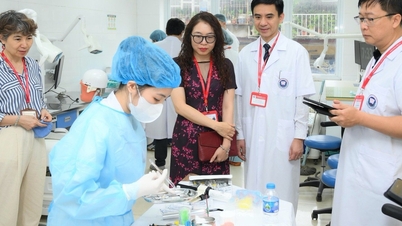



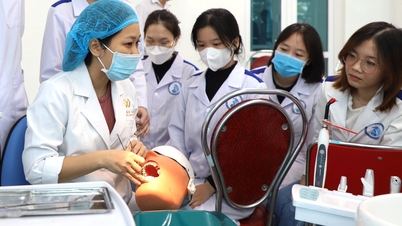


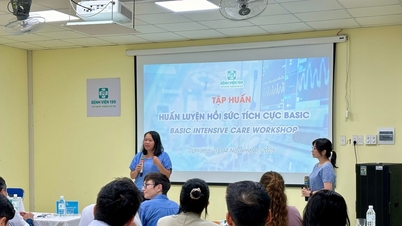




















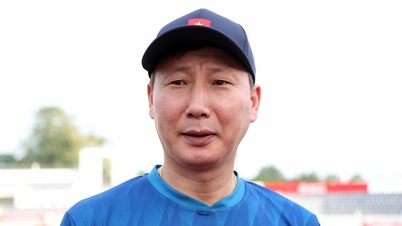










































































Comment (0)